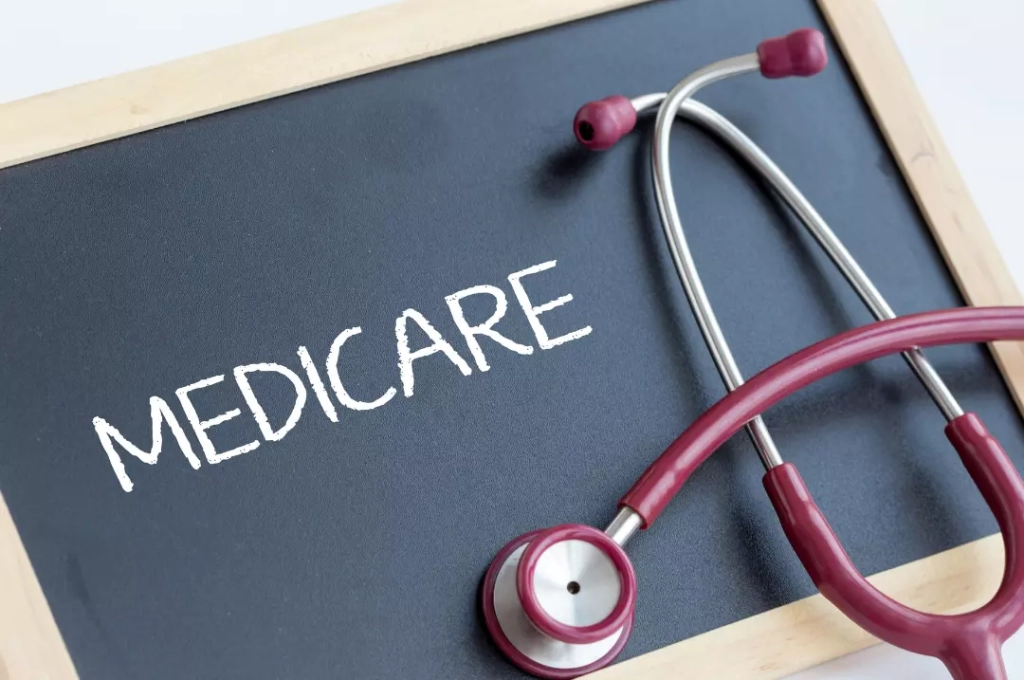What is medicare levy surcharge?
Table of Contents
ToggleAre you an Australian taxpayer who wants to know more about the Medicare Levy Surcharge (MLS)? Wondering what it is and how it might affect your taxes? You’ve come to the right place!
In this blog post, we’ll discuss everything you need to know about MLS in Australia – including key definitions, usage, calculation methods and more. We’ll also look at examples of taxpayers who incur a Medicare Levy Surcharge and look at strategies that can help individuals keep their tax bill as low as possible. So if you’re curious about one of the main components of taxation down under – read on!
What is Medicare Levy Surcharge and how does it work?
The Australian government has introduced the Medicare Levy Surcharge, and it’s important to understand what this means for you.
Essentially, this surcharge applies to individuals and families who earn above a certain income threshold and don’t have private hospital cover. This means that if you don’t have private health insurance, you may be subject to an extra tax to help fund the public healthcare system. While this may seem like an additional burden, it’s worth noting that having private health insurance can offer many benefits, such as shorter waiting times for elective surgeries and greater freedom to choose your own healthcare providers.
For Medicare Levy Surcharge, you will be charged an additional 1% to 1.5% of your income in addition to the standard 2% Medicare Levy paid by most Australian taxpayers. To determine your income for MLS and Rebate purposes, refer to the Private Health Insurance Rebate Calculator provided by the Australian Taxation Office, or contact them directly.
So, while the Medicare Levy Surcharge may encourage more people to take out private health insurance, it’s ultimately up to you to decide what is best for your own individual needs.
Key eligibility criteria for the Medicare Levy Surcharge
As an Australian citizen, understanding the eligibility criteria for the Medicare Levy Surcharge is crucial. This surcharge is levied on individuals who don’t have an appropriate level of private hospital cover and who earn above a certain income threshold.
The surcharge is applicable for both you and your dependents. Your dependents include:
- your spouse
- your children below 21 years of age; or
- your full-time student children who are below 25 years of age.
If you’re unsure about whether you’re eligible or not, it’s important to speak to your health insurer, who can help you understand your coverage levels and advise you on any potential surcharges.
By understanding the eligibility criteria, you can make an informed decision when it comes to your health coverage and ensure that you’re not hit with unexpected fees or charges.
How does MLS impact Australians and their health insurance choices?
The Medicare Levy Surcharge is a topic that impacts the health insurance choices of many Australians. This surcharge is an additional fee that those without private health insurance must pay to the government. This fee is designed to encourage Australians to seek private health insurance instead of relying solely on Medicare.
For those who do not have private health insurance, the surcharge can be quite costly. This means that many Australians must decide whether to pay the surcharge or invest in private health insurance. The decision can be difficult, as both options come with their own set of advantages and disadvantages.
Ultimately, the choice that Australians make will depend on their individual circumstances and priorities.

Calculating the Medicare Levy Surcharge for individuals and families
Calculating the Medicare Levy Surcharge can be a daunting task for many individuals and families in Australia. However, it doesn’t have to be. Let’s break it down.
The surcharge and income threshold levels in effect for the year 2023-2024:
| Singles | Families | Surcharge |
|---|---|---|
| $0-$93,000 | $0-$186,000 | 0% |
| $93,001-$108,000 | $186,001-$216,000 | 1% |
| $108,001-$144,000 | $216,001-$288,000 | 1.25% |
| $144,001 and over | $288,001 and over | 1.5% |
Families with children, including single parents and couples (including de facto couples), are categorised into different tiers. The income thresholds for these tiers are higher by $1,500 for each additional child after the first.
If you fall under the following criteria, you will be required to pay the surcharge for the 2023-24 financial year:
- A single person who earns a yearly taxable income of more than $90,000 for MLS purposes; or
- A family or couple who have a total taxable income of more than $180,000 for MLS purposes. If the family has more than one dependent child, the income threshold will increase by $1,500 for each child after the first; and
- Do not have hospital cover that has been approved by a registered health insurer.
Cover for dependents
Families with a total income above the family income threshold must have hospital cover for themselves, their partner, and their dependents. If hospital cover is not provided for a partner or dependent, the surcharge will apply.
Adult dependents
If you’re not a full-time student and you’re older than 21, you won’t be considered a dependent for MLS purposes. However, if you’re covered as a dependent on a family hospital policy and you earn over the MLS income threshold, you’ll have to pay the MLS. To avoid paying it, you’ll need to get your own hospital policy.
Cover for part of the year and suspension of cover
If you only had hospital cover for part of the year, you will still receive a partial exemption from the MLS. However, you will need to pay the surcharge for the days that you did not have hospital cover.
If you decide to suspend payments for your hospital cover, such as when you are travelling abroad, you are not exempt from paying the surcharge during the suspension period. This means you will have to pay the surcharge for the number of days your cover was suspended.

Requirements to avoid the Medicare Levy Surcharge
The Medicare Levy Surcharge is a fee imposed on those who do not have a private health insurance policy in place. If your income exceeds the threshold and you don’t have private health insurance, you’ll be subject to the surcharge. In order to avoid the Medicare Levy Surcharge, you need to fulfil one of the following requirements:
- your taxable income for MLS purposes is below the income threshold mentioned above.
- If your taxable income is above the MLS income threshold and you and your dependents have approved hospital insurance with a registered health insurer, then starting from April 1, 2019, the maximum yearly front-end deductible or excess on your policy can be no more than $750 for singles or $1,500 for families/couples. Before April 1, 2019, the maximum deductible or excess was lower at $500 for singles or $1,000 for families/couples.
- As a prescribed individual without dependents, you are generally exempt from paying the Medicare Levy, regardless of your income level.
- If you bought hospital insurance with a yearly front-end deductible or excess of over $500 for singles or $1,000 for families/couples before May 24, 2000 and you keep the same policy without any breaks, you won’t have to pay the surcharge even if your income is high.
To know more information about the Medical Levy Surcharge, visit the privatehealth.gov.au
Pros and cons of paying the Medicare Levy Surcharge
Paying the Medicare Levy Surcharge can be a hot topic among Australians who are looking for affordable health care options.
On the one hand, this extra payment can provide some benefits, such as avoiding the burden of lifetime health cover loading or the need for private health insurance. On the other hand, it can also be costly, especially for those who earn high incomes, as it is charged as a percentage of their taxable income. Additionally, not having private health insurance may result in limited coverage and access to medical services.
Ultimately, it depends on your financial situation and health needs when deciding whether paying the Medicare Levy Surcharge is the best option for you.
Do I have to pay the Medicare Levy Surcharge?
If you’re living in Australia and earning over a certain amount of money, you may have to pay the Medicare Levy Surcharge. This surcharge is designed to encourage individuals to take out private health insurance and reduce the burden on the public healthcare system. However, the rules and exemptions can be confusing, so it’s important to understand your obligations. Fortunately, there are resources available to help you determine whether or not you need to pay the levy, and what your options are if you do.
By taking the time to educate yourself on this important topic, you can ensure that you’re fulfilling your responsibilities while also making informed decisions about your healthcare coverage.
Is there a difference between Medical levy and Medicare Levy Surcharge
As an Australian taxpayer, it’s important to understand the difference between the Medical Levy and Medicare Levy Surcharge. While both levies are related to healthcare costs, they serve different purposes.
The Medical Levy is a mandatory tax that all Australian taxpayers pay to fund the public healthcare system. On the other hand, the Medicare Levy Surcharge is an additional tax for those who don’t have private health insurance and earn above a certain threshold. This surcharge is designed to incentivize individuals to take out private health insurance and reduce the load on the public healthcare system.
So, while the two may seem similar, they serve different purposes in financing healthcare in Australia.

The introduction of the Medicare Levy Surcharge in Australia is a direct tax linked to healthcare and health insurance. It has important implications for the financial choices Australians make about their healthcare, especially for those who do not have Private Health Insurance.
We at Wealth Factory, want to help all Australians get access to fair and suitable health insurance policies, and remain informed about their rights when it comes to paying for medical care and treatments. Contact us if you need help!









